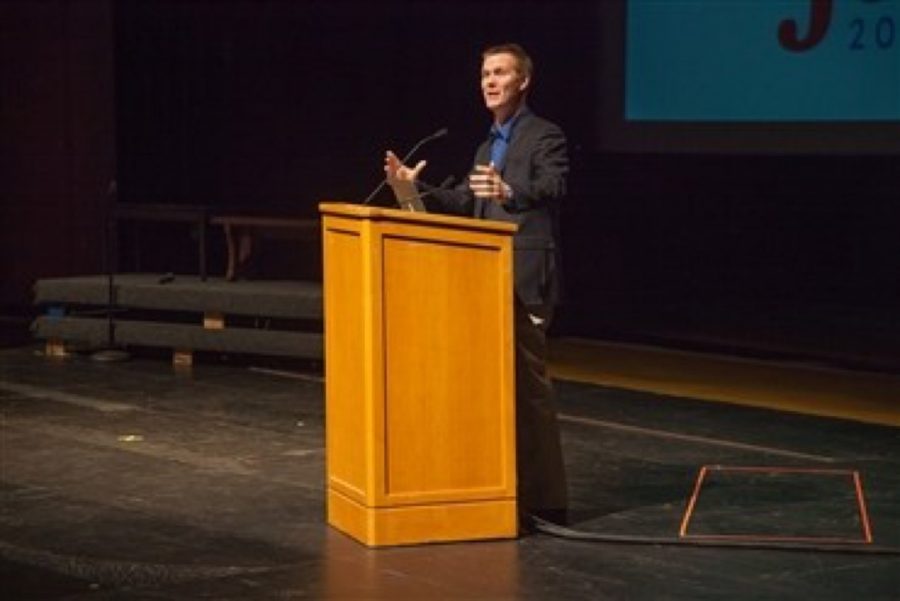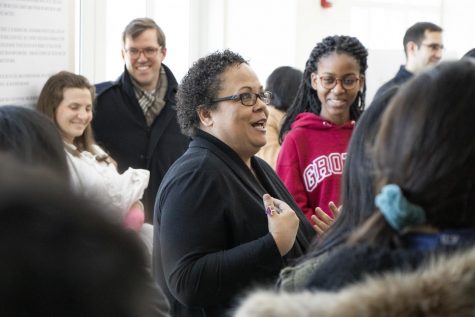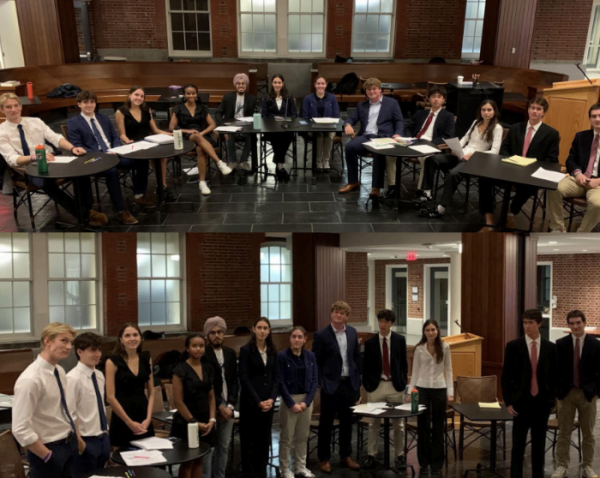Dr. Kriner Gives a Circle Talk
In this of all years, it’s difficult to find an academic understanding of political campaigns and voter behavior –– the overwhelming majority of pundits have been proven wrong time and time again in both the primaries and the presidential race. And too often the mainstream media bases most of its coverage on sound bites, replaying the most controversial statement of any given debate or digging up baseless dirt from a candidate’s past in an attempt to discredit them
To provide insight into the reasoning behind both candidates’ behavior in their campaigns, Dr. Douglas Kriner gave a Circle Talk on September 10th. Dr. Kriner is an associate professor of Political Science and the Director of Graduate Studies at Boston University. A graduate of MIT with degrees in both political science and history, Dr. Kriner went on to earn his doctorate in political science at Harvard University in 2006. The Harvard Graduate School of Arts & Sciences awarded him the Richard J. Herrnstein Prize for “the best dissertation that exhibits excellent scholarship, originality, breadth of thought, and a commitment to intellectual independence”.
Since completing his Ph.D., Dr. Kriner’s work has continued to reflect his passion for political study. He has taught numerous courses at Boston University and continues to publish scholarly works. Dr. Kriner’s most recent book, The Particularistic President: Executive Branch Politics and Political Equality, earned the 2016 American Political Science Association’s Richard E. Neustadt Book Award for the book contributing most to the study of the American presidency. His scholarly publications range in topic from partisanship to the President, although his main research interests lie in American political institutions, separation of power dynamics, and military policy.
Dr. Kriner elaborated on the current state of the presidential race, adapting one of his graduate and undergraduate lectures on presidential election dynamics into a basic guide to political science. Instead of mirroring the media’s predisposition towards catchy but often-unfair blurbs from the candidates, Dr. Kriner steered his discussion in a new and healthy direction.
“I thought Dr. Kriner was really engaging,” says Lily Cratsley ’19. “I expected him to go in and talk about the terror of a Trump presidency or the varying views of the candidates, but instead he highlighted some really interesting points on campaigning and what really leads to the election of a president. It reminded me of Moneyball in the way that something we think of as a game of skill can really be broken down into equations and statistics.”
Dr. Kriner highlighted specifically the impact of candidate endorsement in the presidential primaries. He further explained the mechanisms which differentiate static and dynamic polling models, both of which can be used to forecast the outcome of political races.
Verity Lynch ’17, who met Dr. Kriner previously in Mrs. Spring’s Power and Politics elective: Media and Politics, agrees that Dr. Kriner brought much-needed information amid the chaos of a turbulent election season: “He led an extremely interesting discussion in our class that catered directly to our political interests about this election which was really helpful and cool.” Through the class, students were able to ask Dr. Kriner individual questions, which ranged from comparisons between the American political system and that of the United Kingdom to the impact of third parties on the race.
With less than 30 days remaining before American voters head to the polling booths, Dr. Kriner noted that, in reality, swing voters do not make up a large portion of the electorate. In this election especially, the election will tilt towards whichever candidate’s party turns out the most voters on Election Day.
Lilias bids a warm Canadian welcome from Oakville, Ontario. She has written for the Circle Voice since Second Form and enjoys writing for the News and...










